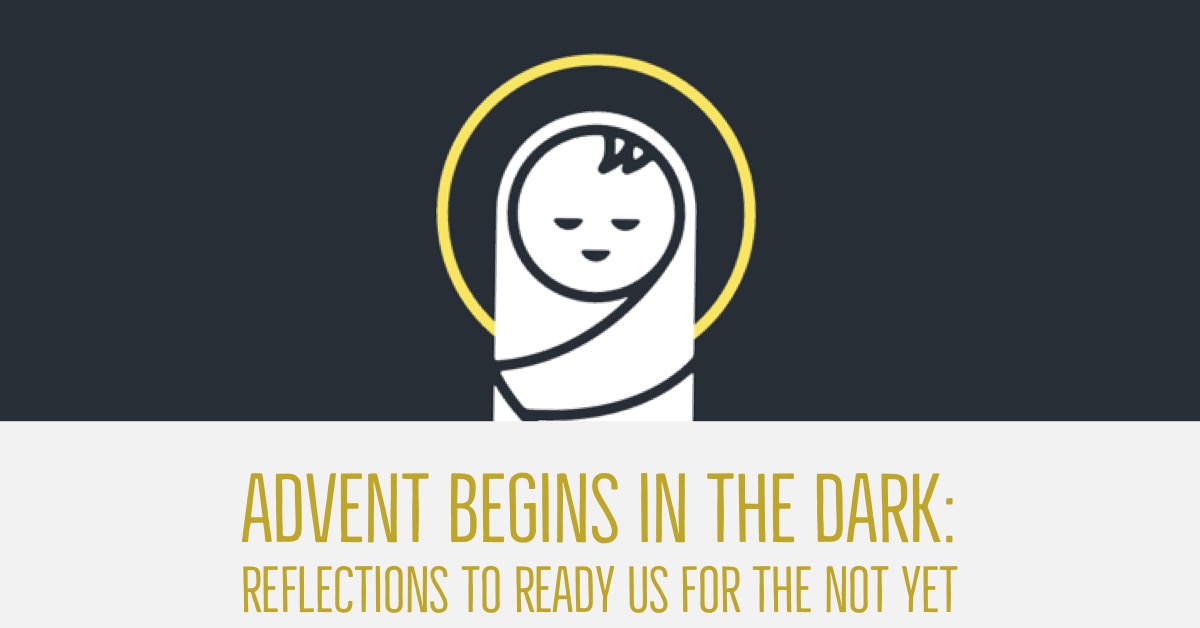
It’s Advent season once again, and that means in addition to recounting biblical prophecies and remembering God’s promises and faithfulness, many of us will also get a healthy dose of the gospel of Luke as we close in on Christmas day. Luke’s gospel tells of the Angel Gabriel appearing to Mary, Mary conceiving the Christ child by the power of the Holy Spirit, Mary’s visit to Elizabeth, Mary’s song of praise to the Lord, the lowly manger birth, and even angels appearing to shepherds in the fields. Luke’s gospel is often where the (church) party happens this time of year.
But look more closely. Luke’s gospel barely mentions an important character in this story. While God gets God’s deserved credit and Mary executes her lines poetically and role with servant mastery, and while Elizabeth is there to offer assurance and support, another character is off in the shadows. A character who, upon learning of Mary’s pregnancy outside of marital relations, literally held her life and the life of her unborn child in his hands. Infidelity, after all, could warrant death according to Jewish law, and at the very least, divorce. Yet, that isn’t what happens.
Where is Joseph as this all plays out? What is he thinking? Does he seek anyone for counsel? Luke’s gospel mentions Joseph only passively and for lineage sake, and never gives an account of Joseph’s own thoughts or words. In fact, there is no record of Joseph saying anything at all, not one word of his own, in all of Scripture. Joseph only gets fourteen mentions in the entire Bible. For a character who plays a pivotal role in the birth and childrearing of Jesus, Joseph really doesn’t get much ink cred, does he? We have no idea what happens to him after Jesus’ teen years either, as scripture doesn’t tell us.
Matthew’s gospel account is really the only place where we get to know a little bit about Joseph, and even there we don’t learn much. What we do learn, however, is that Joseph’s is a righteous man, and that his quiet, humble obedience to the Lord played a major role in God’s redemptive plans. Despite what I imagine to be Joseph’s own fear and shame—who, after all, would believe their Holy Spirit conception story–he obeys the Lord.
Lucky for you and I, to the best of my knowledge, none have been asked by God to be the mother of Jesus’ second coming. Lucky for us, none have had to tell our spouses or hear our spouses tell us that we are pregnant with God’s child. Lucky for us, God is still God, Jesus already accomplished God’s purposes, and we are safe with the promises of our Lord despite all of the hurt and hurting around us.
However, as an adoptive parent who regularly does life with other adoptive and foster families, all just regular ole Marys and Josephs who stepped into relational uncertainty of all kinds, many are able to relate to Joseph’s shadowy role in the life of a child. We can relate to being sidelined, to living with fear, uncertainty, and shame even, while trying our best to be faithful to the call God has placed on our lives.
We may be able to relate to the immense responsibility that comes with raising children who are born not of our blood. And relate to working tirelessly day in and day out to love, raise, and protect a child whose life inevitably brings us heartache and pain, intermixed with joy and purpose.
Adoption in and of itself is a traumatic event for any child, regardless of whether it happens at birth or 18. In addition, raising children with histories of trauma can be especially lonely and isolating, devastating even. Does anyone see how scared we are? How tired? Does anyone see the cost? Positively, does anyone realize how transformative this experience is? Will others be willing to assume the risk to experience the relational reward? Even if it means getting no mention, no credit?
For sure, raising children who have endured multiple traumas is the most difficult vocation God has called me to, and also the most rewarding. Like Joseph, our own identity and the significant role we play as parents may get overshadowed or confused, threatened and belittled even, as God calls us back into the ring each day to support, give care, provide, encourage, raise up, and empower our children. Children, who in some cases due to their own history of trauma, hurt, and resulting attachment challenges, can not only reject love and relationship, but sometimes unintentionally continue the cycle of adding hurt upon hurt.
Most in our world learn sooner or later that adoption is incapable of completely healing primal wounds or restoring wholeness from wounds generated by the severance of primal mother-child bonds. This was not God’s Plan A, after all.
Fleming Rutledge, an Episcopal priest and acclaimed preacher and author, is quick to remind us that there are always three “actors or forces” at work in our universe. While Christians are usually quick to remember God and humanity, we are often unwillfully negligent in remembering and giving voice to the destructive and powerful work of Satan, or the Evil One, among us. The trauma and broken relationship many of our children live with and in is nothing short of the manifestation of evil. Evil, theologically understood as nonbeing or that which is not, represents everything that is not whole, right, and restored.
You and I? We cannot defeat evil, only God can do that. We are only capable of resisting it. Which is where adoption comes back into play. Adoptive families often resist the evil of trauma and broken relationship by entering straight into the relational pain, by refusing to give up hope of healing and restoration, and by allowing ourselves to believe that things will be made right. Fleming says, “Evil is vanquished now, in suffering love, and will be vanquished forever in the triumph of God.”
That, is the promise and the hope. The reason we wait.
Like Joseph’s response to God when the Angel appeared to him in a dream (Matthew 1:20), when we said yes to God’s call on our lives, we did so in faith and obedience despite not knowing where the path would take us. For many, the path has taken us to places of great joy, and also great pain. The path has taken us to new places of belonging, and old places where we are now no longer welcome or accepted. It has taken us to counseling appointments, hospitals, doctor’s offices, school board meetings, principal’s offices, championship soccer tournaments, art shows, broken relationships and relationships restored; to concerts, first jobs, and college admissions offices, not to mention probation offices. The path has showed us God in ways many of us may never have wanted to know God. The path has showed us the world’s brokenness, systemic injustices, and the corruption of power in ways many of us would have rather remained ignorant to.
And yet here we stand. Waiting. Promises not yet fulfilled. Bruised, scarred, often confused and lonely. And yet, capable of a bigger love than we likely ever imagined, even as we take our place, often in the shadows.
What I admire most about Joseph, as adoptive dad, in our loud “see me, me, me” world, is that in his humility and pure obedience, he refuses to allow his individual experience to overshadow the collective experience God is birthing. He doesn’t allow the “I” to overpower the “we.” He offers up a bold act of resistance. Joseph does not ask to be tagged, shared, or mentioned. He doesn’t ask us to buy his latest book or subscribe to his latest leadership podcast: leading while scared. He doesn’t launch a new kind of ministry for parents of children conceived by the Holy Spirit.
Rather, Joseph humbly, quietly accepts the call God has placed on his life. The end.
He reminds me through his quiet loyalty and support that relationship matters, that no matter how lonely the adoptive, foster, and/or trauma road gets, we weren’t meant to do it alone or do it for praise. He reminds us that we are not God. He reminds us, that whatever we are doing, if we are doing it out of our love for God and love for the other, we are doing enough. We are enough. No platform needed. No accolades. No mentions. No quick fix assurances or 30 days to overcoming trauma subscriptions.
The Advent promise and hope remains.
“Evil is vanquished now, in suffering love, and will be vanquished forever in the triumph of God.”
Come, Lord Jesus…
